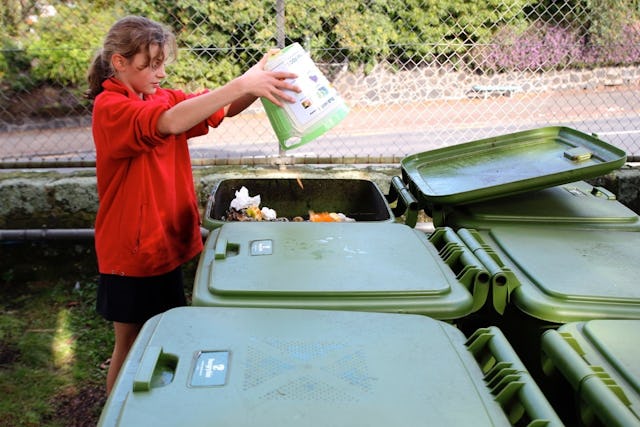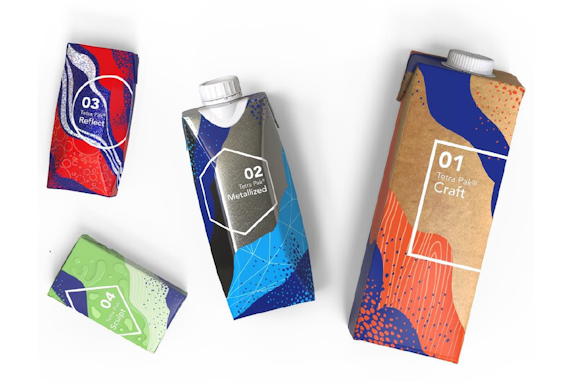Many reports on the circular economy cite very large numbers. The World Business Council has identified a commercial opportunity of up to $4.5 trillion. However, two things often happen at the beginning of any circular economy discussion — the word ‘economy’ gets forgotten entirely and ‘circular’ gets reduced to recycling. Many people are surprised to learn that only a small part of the value from a circular economy will be realised from recycling. If we only focus on recycling, we’ll only realise a tiny fraction of that $4.5 trillion opportunity.
Thinking beyond recycling and recycled content requires a broader, systems-based approach and a firm eye that is focused on the economic prize, as well as the environmental and social benefits. This is where thinkstep-anz can make a real difference. We can cover each of the main aspects of the circular economy, whether it is initial orientation, strategy development, or Cradle to Cradle Certification.
The circular economy calls for multidisciplinary collaboration
In the early days of discussing the circular economy, there was little action or delivery of real projects, just lots of talking. Once national and regional governments, as well as businesses, accepted the concept of the circular economy, the projects that were completed demonstrated why it mattered. A core driver of those projects was the collaborations facilitated by the Ellen MacArthur Foundation — the circular economy has a fundamental need for collaboration within and across supply chains.
For Jim Goddin, Head of Circular Economy at thinkstep-anz, these types of multidisciplinary collaborations have been his passion for a long time.
“I’m particularly excited by the role of Planet Ark and our involvement in this network as a Technical Supporter of the Australian Circular Economy Hub.”
We’ve helped several companies on their pathway to circularity
Our diverse range of projects include:
calculating the carbon footprint as an additional driver for circular solution Asaleo Care
researching circular economy opportunities for an industry sector with Forest and Wood Products Australia
quantifying the circularity of a product for InfraBuild
undertaking full Life Cycle Assessments to assess overall environmental impacts for Tetra Pak and Oceania.
For many years, we have worked together with ASX listed company, Asaleo Care to better understand the environmental impact of their products. Asaleo Care is a leading manufacturer of professional and personal hygiene products (such as paper towels and pads) across Australasia. The manufacturer uses Life Cycle Assessment (LCA) studies to quantify the environmental performance of their paper towel products. An LCA study assesses environmental impacts over the whole life cycle of a product, process, or service. The results from Asaleo Care’s LCA studies show that the main environmental impact comes from what happens to a paper towel or napkin after it is used through emissions generated in landfill.
To address the impact after use, they have launched a campaign to inform consumers on the benefits of composting paper towels and napkins. They help consumers compost hand towels after use installing on-site worm-farms for large corporate clients like Westpac. They not only close the loop on paper waste with this initiative, but also significantly reduce carbon impact along the life cycle.

Hungry Bins worm compost system.
Asaleo Care was awarded grant funding as part of the Australian Government’s National Product Stewardship Investment Fund for waste reduction and recycling projects. The grant will go towards funding the trial of a new stewardship scheme providing a cost‐effective and environmentally friendly end‐of‐life solution for problematic absorbent hygiene product waste that typically ends up in landfill.
A sector approach is often most effective to develop circular economy solutions. Our work for the Australian wood products industry with Forest and Wood Products Australia is helping the sector understand key concepts and identify problem areas and opportunities. This collaboration included our recently completed circular economy project for Illawarra Shoalhaven Joint Organisation on finding alternative uses for waste from joineries and kitchen manufacturers in the region.
‘You can only manage what you measure’ is also true for the circular economy. Our work with InfraBuild — Australia's leading integrated steel manufacturing, processing, distribution, and recycling business — is game-changing. We have enabled them to measure and improve on the circularity of their steel products through the application of the Materials Circularity Indicator (MCI). InfraBuild started with building the MCI into their reinforcing bar product and have now expanded to incorporate the circularity indicator into their entire EPD collection with thinkstep-anz’s help. Find out more here.
Our market-first comparative study of cartons, glass, aluminium, tins and plastic packaging found that cartons have the lowest (or lowest equal) carbon footprint out of all packaging for long-life milk, fresh milk, juice, water, and food. Three independent experts reviewed the study commissioned by Tetra Pak and confirmed that it fully complies with the ISO standards for Life Cycle Assessment. Planet Ark covered this study in November last year and we summarised the results here.

Tetra Pak containers.
We’re excited to see the circular economy gain momentum in Australia
Jim Goddin joined thinkstep-anz in 2020 because he was so impressed by the momentum of circular economy in Australia. Jim is a chartered materials engineer and a Fellow and Strategic Advisor of the Institute of Materials, Minerals and Mining. He specialises in circular economy systems design. Jim has worked alongside the Ellen MacArthur Foundation for much of the past decade, leading and co-authoring the widely adopted Material Circularity Indicator methodology. Jim’s passion for quantifying and measuring real impact aligns perfectly with our data-driven approach to sustainability.
Jim first saw the circular economy concept as a materials engineering challenge.
“It represented a unique opportunity to take a step back and reassess how and why we make and use products the way we do — an opportunity to come up with something fundamentally better.”
Although the beginnings of the circular economy movement in Europe were slow, Jim notices that other regional initiatives have since been able to springboard off this early work and accelerate faster as a result.
“We have a greater body of knowledge now and better tools to help us implement the circular economy. I’ve observed this particularly with US and Australian businesses.”
Jim warns that we must avoid the same old traps — whether it’s seeing the circular economy as a waste management issue rather than a matter of economic resilience or thinking that recycling is the only solution we need. There’s a big chunk of the economic opportunity that’s not yet being fully captured.
The circular economy is also a global challenge where many people can collaborate with life cycle experts: materials engineers, mechanical engineers, chemists, product designers, supply chain experts and even lawyers. These collaborations can make a significant difference to the profitability and resilience of companies by mitigating against the supply risks, reputational threats and emerging legislation that increasingly threaten business as usual. At the same time — if implemented effectively — the circular economy can also help us achieve the UN Sustainable Development Goals and bring us all to a better place.